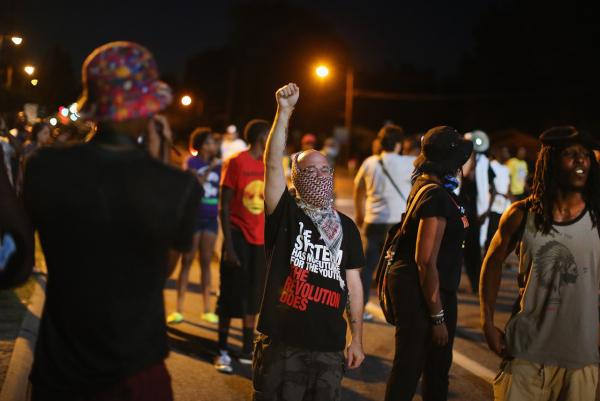I’m just a person. Concerned. Disheartened. I’m not an expert on the details of this case or any of the (many) similar cases.
I’m just a peaceful, law abiding citizen. A person who wants my streets to be safe for me, my family, my community, all people, all children.
A person who finds it irrational, bizarre, and horrific to loot one’s own community.
As “just a person,” I find myself confused, angry, frustrated by looting, especially as a reaction to injustice. I ask myself, “What goal is this serving? Doesn’t violence just beget more violence?”
And I’m also confused, angry, and frustrated by the myriad of cases where law enforcement abuses their power and uses excessive force, against anyone. Especially concerning is the fact that this force is statistically disproportionately directed toward people of color, especially black men.
I’m just a person, outraged by all types of racism, including the subsequent acquittal of this latest use of excessive force, which is tantamount to our justice system giving it a stamp of approval.
Most importantly, I’m a person with the profound privilege to be “just” a person.
Because I’m white, and therefore part of the dominant white culture, I have the privilege to sit back and be outraged, confused, frustrated, while still carrying on with my day. Because I’m not raising young black males, I do not have to figure out how to advise them on living in a world where the dominant culture is inherently biased against them (and largely denies it).
I do not have to help them with the impossible task of reconciling how to work and live peacefully in a world where the inherent bias toward them—consciously, unconsciously, overtly, or systematically—continually adversely affects their livelihood and literally endangers their lives.
How would I justify telling them to acquiesce to this? Would I?
I can’t imagine myself ever condoning something like looting, but I try my best to imagine, and to ask myself:
What would I do if I had no voice, no power, no recourse against a system that has enslaved me, my family, my community, for centuries?
What would I do if I were supposed to work and live within a system that is supposedly designed to protect all of its citizens, but continually signs off on the atrocities disproportionately affecting me and my family and my community?
What would I tell my children to do? How can I justify telling them to respond “rationally” to an irrational incessant machine that controls their lives?
I honestly don’t know how to answer these questions. And frankly, I think this is where we, as a country and as a unified community, need to start.
We need to start acknowledging the issues, the uncertainty, the questions.
It’s not a comfortable place to be—acknowledging ugly realities like white privilege, systemic racism and inherent bias. It’s not easy to admit that these realities profoundly affect the relationship between disenfranchised communities and those with the lethal combination of bias and power—such as (but not limited to) those who work in law enforcement.
Let’s just start here.
Let’s admit that we’re in a bad place. That we are all brainwashed, biased, racist. That even under the best of circumstances with the best intentions, when you put a gun into the hand of someone inherently biased toward a particular community, there is going to be injustice.
Let’s admit that our system is profoundly flawed.
Let’s start saying less and asking, discussing more.
If we focus on the issues and the subsequent questions rather than trying to force feed each other answers, we might be in a rightfully confused, outraged, frustrated but unified and honest place.
Love elephant and want to go steady?
Sign up for our (curated) daily and weekly newsletters!
Author: Jenny Spitzer
Editor: Emily Bartran
Photo: Debra Sweet/Flickr











Read 3 comments and reply